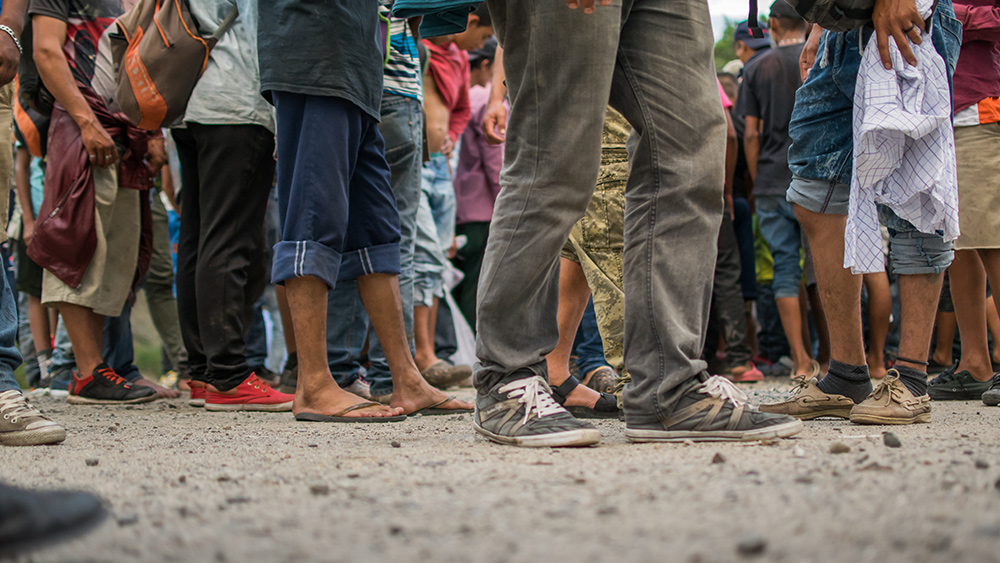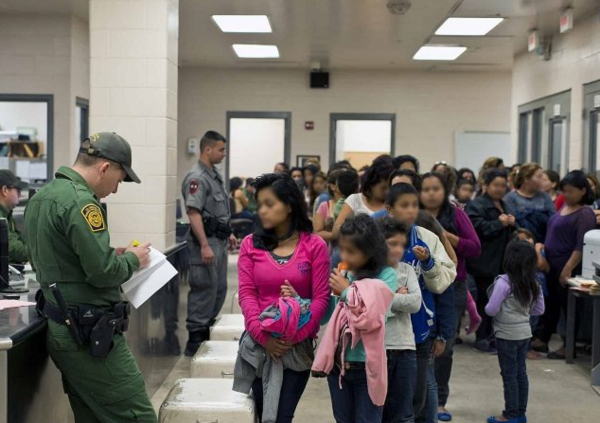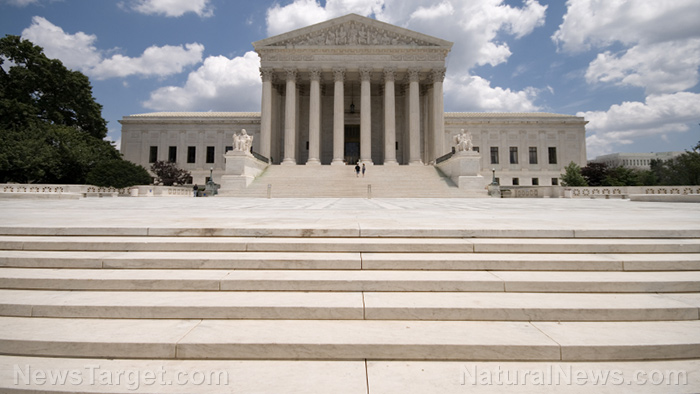 Parler
Parler Gab
Gab
- The Chinese-American Planning Council (CPC) received $1.4M in federal grants since 2022 while allegedly advising illegal immigrants on evading ICE.
- CPC’s donations include $446K from entities linked to the Chinese Communist Party (CCP), including state-owned banks and organizations affiliated with CCP influence networks.
- Undercover footage shows CPC staff instructing migrants to “harden physical spaces” and train individuals to resist ICE enforcement.
- The Committee of 100 (C100), linked to CCP’s United Front Work Department (UFWD), has financial and leadership ties to CPC.
- House Republicans launched an investigation, citing national security risks of taxpayer funds supporting groups undermining U.S. sovereignty.
The money trail: Chinese state-owned banks and the “community” front
CPC’s financial records reveal a clear pattern of funding from entities aligned with Beijing’s United Front Work Department (UFWD), the CCP’s global influence and intelligence arm. Since 2018, Chinese state-owned banks — including the Bank of China, Industrial and Commercial Bank of China (ICBC) and Bank of East Asia (whose executives sit on CCP advisory boards) — donated nearly $446,000 to CPC. Meanwhile, the Charles B. Wang Community Health Center, whose namesake maintained ties to the dissolved China Overseas Exchange Association (a CCP−aligned exchange group), contributed over $229,000. “The CCP has long used proxies to chip away at U.S. institutions,” Colonel John Mills (Ret.), a national security expert, told the DCNF. “CPC is part of a broader strategy to pacify critics of Chinese policies by diverting attention to domestic causes—like blocking immigration enforcement.” House Republicans cite these flows as evidence of foreign interference.Workshops, warnings and “hardening” ICE resistance
In March 2022, undercover video captured CPC staff coaching migrants on tactics to avoid detection by U.S. immigration agents. Carlyn Cowen, CPC’s policy chief, advised audiences to:- Designate “authorized responders” to interact with ICE.
- “Harden physical spaces” (e.g., lock doors, limit access).
The Committee of 100: CCP’s shadow diplomacy in plain sight
CPC’s ties to the Committee of 100 (C100) — a group tasked with fostering U.S.-China relations — deepen concerns. C100 has been labeled a CCP “cover organization,” with members sitting on CCP advisory bodies, including the United Front. Shared leadership and funding between CPC and C100 point to coordinated goals. Charles P. Wang, a CPC and C100 leader, serves as an advisor to CCP entities, while C100 member Dominic Ng donated directly to CPC. “C100 isn’t just influencing policy,” said former RNC official Shawn Steel. “They’re enforcing Beijing’s agenda here—even if it means sidestepping U.S. laws.” The group defended its neutrality in a statement but refused to answer questions about connections to the UFWD or CPC.A test for sovereignty in the CCP era
The CPC scandal is not merely about immigration—it’s a microcosm of China’s ambition to weaken U.S. domestic policies through proxy groups. With 55% of CPC’s revenue from public funds, the stakes are existential: Will Washington tighten oversight of taxpayer-funded NGOs, or tolerate foreign actors sabotaging border security? The House investigation illuminates how Beijing exploits legal ambiguities to erode American autonomy. As Rep. Green put it: “The CCP counts on us looking the other way. This ends now.” The question remains: Can the United States defend its sovereignty in an era where CCP influence is neither loud nor proud—just systemic? Sources for this article include: YourNews.com DailyCallerNewsFoundation.org WashingtonExaminer.comVisa overstays now a major driver of U.S. illegal immigration, surpassing border crossings
By Laura Harris // Share
Trump administration expands deportation strategy with global partnerships
By Laura Harris // Share
Former LA deputy mayor pleads GUILTY to fabricating bomb threat against City Hall
By Ava Grace // Share
Gov. Greg Abbott signs law that requires age verification, parental consent for app downloads
By Laura Harris // Share
Governments continue to obscure COVID-19 vaccine data amid rising concerns over excess deaths
By patricklewis // Share
Tech giant Microsoft backs EXTINCTION with its support of carbon capture programs
By ramontomeydw // Share
Germany to resume arms exports to Israel despite repeated ceasefire violations
By isabelle // Share










